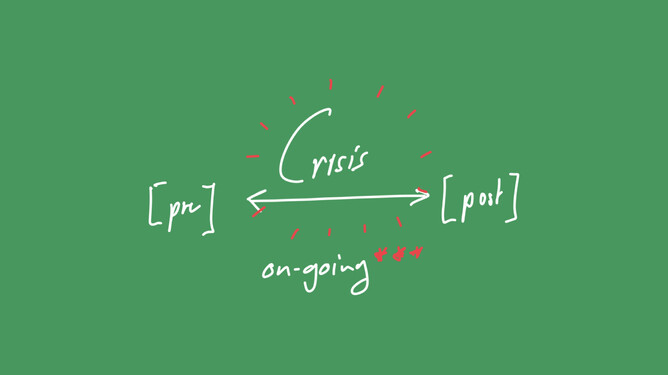Touchpoint is a crisis - but don’t let it be only in the crisis!
(A plea for ongoing personal discipleship)
When talking with people I often hear something like this. This or that happened, things turned bad, someone came alongside, he / she helped me get things sorted. Things got better and the friendship dissolved. Of course we stil know each-other but the relation is basically lost.
Sounds familiar?
Or the other way around. Things go really well. Friends all around, lots of people who walk with you. However, when the ‘really well’ becomes normal things settle and many of these friends disappear. At the end they still know each-other but the relations are not really intentional and focussed.
Sounds familiar?
What if discipleship would be more long-term and not just incident based?
What we see time after time is that if a discipleship relationship is aimed at the long-term the results are way better. More growth, more focus, more Jesus-likeness, simply .. more.
Two main points here to consider:
- If a long-term discipleship relation is in place than a person has a solid support for when things go bad. We all have times of trouble and problems. If these situations cause us to look for someone, or someone comes by because he/she sees we’re struggling, we have to establish trust first before one can help. It other words we need to have a network before we need it (need as in the situation of a problem). A word that is linked to this point 1 is speed, it is quick because the relation is already there.
- If a long-term discipleship relation is in place the crisis is seen in an earlier stage and thus a lot of problems can be prevented. In other words, the discipleship relation (and the accountability that comes with it) is a help in staying on track, preventing problems to arise. A word that is linked to this second point is prevention. If the relation is already there, a lot of problems will be prevented.
I prefer a more preventive approach, and when things happen I prefer them to be solved quicker. Don’t we all?
What if all is well?
Now in the two points above I worked around a situation when things go wrong. Simple truth is that it’s not like that all the time of course. So what about when things are ‘fine’?
If we would have a discipleship relation going on we like to use two words. The first is relation - it is a relational thing, and the second, it needs to be intentional. Victories don’t come by accident. Neither does a disciple grow by accident. We need to do things to grow. Just like a baby needs to eat in order to grow, we as disciples need to take food as well. And just as a toddler needs to practice his first steps, we too need to practice the ways of Jesus and learn what it is to walk like Him, talk like Him, act like Him. Practice. And that does not come by accident.
I would like to highlight two elements here.
- How you start matters. In the book ‘We’re not the Hero’ the author writes: “What you do at day 1 informs what you’ll be doing on day 10, day 100 and day 1000.” How you start matters. Or to put it another way: “Start with the end in mind”. Isn’t that what Jesus did when He said “I will make you fishers of man?” Jesus is a genius. He starts with where they are at - fisherman - and He expands their vision to something that they have not yet dreamed of - fishers of man. Amazing. For discipleship it is really important to have your ‘frame-work’ right. Questions like: What is Biblical Discipleship?, What does it mean to lead your ‘Timothy’?, What are the principles that you use for your discussion making?, How do you motivate your disciple? Questions like that, because how you starts matter. On the website of Alongsiders Europe you can find some great starting points. I can highly recommend the book “The Alongsiders Story”. The book that I mentioned earlier “We are not the Hero” is a recommended one too.
- The second point is that you need to ‘do’ something. Discipleship does not happen in a vacuum. You need to go somewhere. Jesus took His disciples on a journey. They were on the go. They did things. They went on internships. They had opportunities for practice, etc. So when you plot out your ideas for discipleship make a plan as in what you’re going to do. How would it look like? Jesus never invited His discipel into Bible school or a course of some sort. Rather it was living it out in real life, real grit and dusty work. How does that look like for you? Back to Alongsiders again - what they do is taking Jesus commands and bring them into practice. They call them ‘challenges’ or ‘microCHALLENGES’, but the idea is the same: doing what Jesus said. And in doing so the context for the teaching is created. Doing is the medium for the teaching (media) to make sense. Do you agree?
This BLOG just highlights some rough ideas and concepts. Let me know what you think, I am looking forward to it very much. The bottom-line is that I think we all should be able to name a person we’re discipling. Discipling is a verb - right? Not just when things go wrong, but way more when things are all-right and there is energy for growth.
Jesus - make us into Your image more and more we pray.

